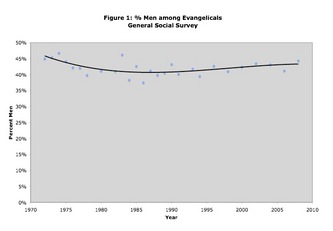The Christian Tradition and a Social Theory of Contract
“Freedom to contract” is one of the pillars of libertarian economic theory (the other being “protection of private property rights”). The principle of freedom to contract suggests that government should avoid regulating private transactions because the individual parties to contractual agreements are in the best position to judge the value of their bargain and possess the moral freedom to make their own bargains.
Many conservative Christians take an essentially libertarian approach to freedom of contract. For example, the Acton Institute for the Study of Religion and Liberty, a think-tank with strong Catholic ties, states on its website that “[p]rivate property and the freedom to contract are fundamental human rights, as each person is entitled to enjoy the fruits of his labor.” Theological grounds for this perspective include the inherent worth of the individual as created in the image of God, and the sinful tendency of people with governmental power to abuse that power.
What do you think: are the right to private property and the freedom to contract fundamental human rights? Is the notion that “each person is entitled to enjoy the fruits of his labor” theologically justified? What would a non-libertarian Christian theory of contract entail?
In my judgment, these are valid notions, but they are not the whole story.
In his chapter “The Christian Sources of General Contract Law” in the
splendid Christianity
and Law: an Introduction, pioneering law-and-religion scholar Harold
Berman traced Western contract law to its medieval canon law roots. As Berman
explained:
In subsequent centuries, many of the basic
principles of the canon law of contract were adopted by secular law and
eventually came to be justified on the basis of will-theory and party autonomy.
It is important to know, however, that originally they were based on a
theory of sin and a theory of equity. Our modern Western contract law did
not start form the proposition that every individual has a moral right to
dispose of his property by means of making promises, and that in the interest of
justice a promise should be legally enforced unless it offends reason or public
policy. Our contract law started, on the contrary, from the theory that a
promise created an obligation to God, and that for the salvation of souls God
instituted the ecclesiastical and secular courts with the task, in part, of
enforcing contractual obligations to the extent that such obligations are
just. (Christianity and Law, at 132).
This broadly social notion of contracts was modified, Berman noted, during
the Puritan era. The Puritans’ strong notion of total depravity made them
less willing to place the authority to determine which obligations are “just”
in the hands of a magistrate. Moreover, the Puritans’ emphasis on order
inclined them to seek the meaning of contractual documents in the literal words
of the document rather than in an overarching contractual hermeneutic of
justice.
However, even for the Puritans, “private” contracts were social obligations
within the all-inclusive fabric of God’s covenantal relationships with people.
Private contractual relations were not really “private” — they were
covenantal relations between people who were also bound in covenantal relation
to God. As Berman explained,
the Puritan stress on bargain and on calculability
(“order”) should not obscure the fact that the bargain presupposed a strong
relationship between the contracting parties within the community. These
were not yet the autonomous, self-sufficient individuals of the
eighteenth-century Enlightenment. England under Puritan rule and in the
century that followed was intensely communitarian. (Id. at 140).
In the Eighteenth and Nineteenth Century Enlightenment, these theories of
contract based on justice and covenant were secularized. Justice and
covenant were replaced with “the inherent freedom of each individual to
exercise his own autonomous reason and will, subject only to considerations of
social utility.” (Id.) These Enlightenment ideas “broke many of the
links not only between contract law and moral theology but also between
contract law and the comunitarian postulates which had informed both Catholic
and Protestant legal traditions.” (Id. at 140-41).
It is a shame, I think, that contemporary evangelical discourse about law
seems to focus so heavily on notions of individual freedom to contract that seem more post-Christian than Christian. We seem to be left with two options:
the current prevailing secular legal theory of contracts, which is
strictly realist and pragmatic and elides any notion of higher values, and the
religious right’s libertarian view of contract, which elevates the individual
far above the community. I agree with Berman: “[w]e may learn from
history . . . that there is a third possibility: to build a new and
different theory on the foundation of the older ones.” (Id. at 141).
What do you think of Berman’s
historical analysis? How might we
construct a “third way” Christian theory of contract, property and liberty?


